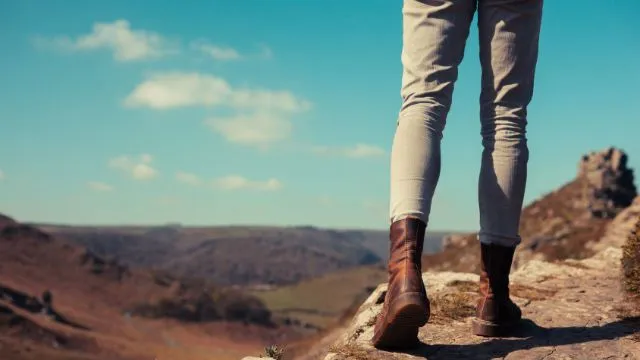
- Share on Facebook55
- Share on Pinterest
- Share on Twitter
The average American spends between 80 and 99 percent of their time indoors: a number which is thought to be growing. As we lose touch with nature, our mental and physical health also deteriorate, as being outside in nature has been shown to provide some important health benefits, from a healthier Vitamin D level to a happier mood, a stronger immune system, and a better ability to focus.
Eco-therapy—a type of therapy growing in popularity—aims to rectify this problem, and improve people’s mental health by helping them reconnect with nature. Eco-therapy is a broad term, which simply means spending time in nature to make yourself feel better. However, eco-therapeutic methods are also official methods of treatment used by licensed therapists, and include camping, wilderness programs, or simply being guided on a walk through nature.
The philosophical and scientific basis for eco-therapy is that nature heals: a fact that many recent studies have demonstrated, particularly in terms of mental health. For example, in 2007, researchers at the University of Essex found that 90 percent of people in a group suffering from depression felt a higher level of self-esteem after walking through a park, and almost three-quarters of the group experienced a reduction in their feelings of depression.
The same research team did a survey that found that 94 percent of people with diagnosed mental illnesses believed that being in contact with nature improved their mood.
The apparent healing potential of contact with nature raises the following question: in a world where pharmaceuticals are usually used to treat mental disorders and improve our mood (not always successfully), what is it about being outside that has the power to raise our spirits and heal us?
Psychologist Oliver James suggests, “we are twice as likely to be emotionally distressed if we are urban rather than rural…. Part of the reason for this is estrangement caused by lack of exposure to natural sights, sounds and smells, to dislocation from the natural rhythms of the seasons, of night from day.” So, nature heals simply by putting us in touch with our natural, evolutionarily-based patterns of lightness, darkness, sounds and smells.
Furthermore, the therapy helps by getting us away from all the unhealthy habits we engage in to cope with life’s challenges. Too often, we turn to things like alcohol, food or technology to placate us, rather than actually processing what is causing us pain. Being out in nature without these substances and devices gives us the space to face or acknowledge what we are actually experiencing and why, which is incredibly important for mental health.
 James also suggests that there’s a spiritual element to the healing power of nature, explaining that some clients report: “…a deep sense of connection to all things. A heightened awareness of plants, animals and landscape leads them to ponder existence beyond themselves. The power of nature encourages a sense of higher powers and of connection both to self and to others.” Eco-therapy therefore works because it reconnects us with nature, and through doing so, to our inner, spiritual selves.
James also suggests that there’s a spiritual element to the healing power of nature, explaining that some clients report: “…a deep sense of connection to all things. A heightened awareness of plants, animals and landscape leads them to ponder existence beyond themselves. The power of nature encourages a sense of higher powers and of connection both to self and to others.” Eco-therapy therefore works because it reconnects us with nature, and through doing so, to our inner, spiritual selves.
So, the next time you’re feeling a bit down or frustrated, the cure may just be getting out of the house, taking some time to visit a park or another natural space, and appreciating the natural beauty that surrounds you.
-The Alternative Daily
Sources:
http://www.greenexercise.org/pdf/JEPM%20-%20CRN%20Study.pdf
http://www.psychologytoday.com/blog/out-the-darkness/201204/the-power-nature-ecotherapy-and-awakening
http://www.theatlantic.com/video/index/383642/nature-deficit-disorder
http://www.theguardian.com/lifeandstyle/2014/sep/18/garden-ecotherapy-here-easier-for-people-to-open-up
http://news.health.com/2014/09/29/health-benefits-of-nature
- Share on Facebook55
- Share on Pinterest
- Share on Twitter

